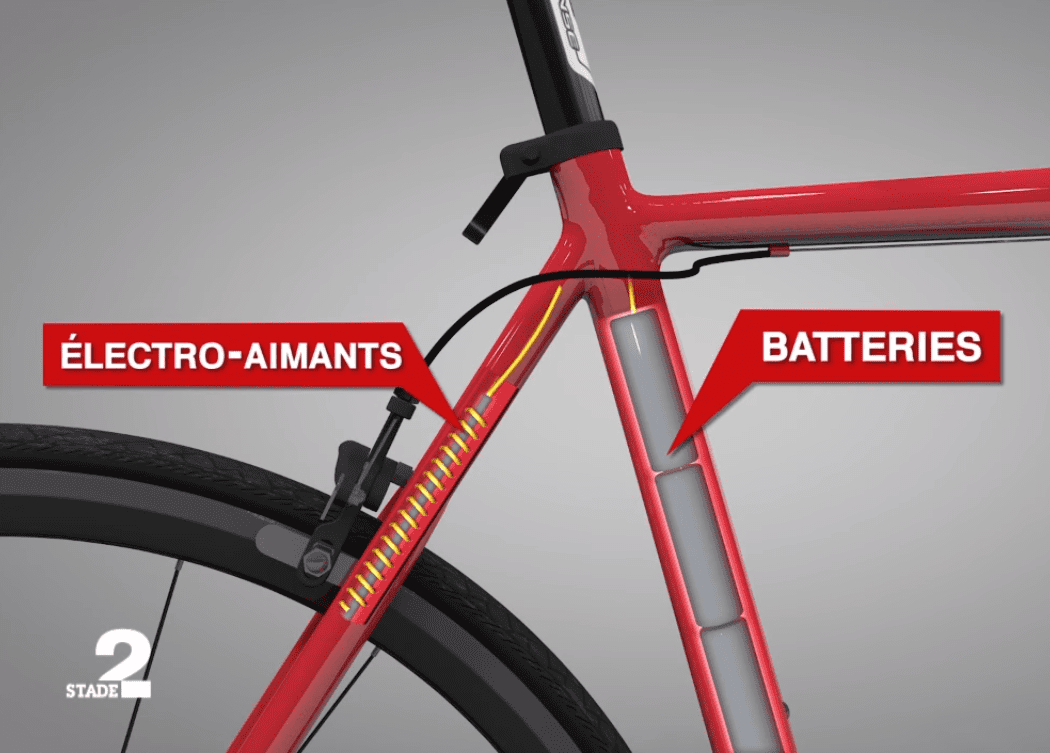UCI appoints American criminal investigator in fight against tech fraud
Former U.S. Department of Homeland Security staffer Nicholas Raudenski will analyze all allegations and reports of motor doping

On Wednesday, the UCI announced the appointment of Nicholas Raudenski in a position called the head of the fight against technological fraud. Raudenski, a former criminal investigator, is to begin his new role on May 1.
According to a statement from the UCI, Raudenski will spearhead the formulation and execution of a new strategy aimed at combating technological fraud.
Investigation all allegations of motor doping
The UCI hopes he will enhance the organization’s initiatives. His role is to stay abreast of technological advancements to ensure efficacy in detection methods. Additionally, Raudenski will investigate all allegations and suspicions of technological fraud.
Raudenski transitions to the UCI from his prior role as head of intelligence & investigations (I&I) at the International Testing Agency (ITA). That is the independent entity responsible for the UCI’s anti-doping endeavours. That was a position he held since August 2021.
US Department of Homeland Security background
The American worked for 23 years as a criminal investigator. He had positions as deputy attaché, international programme manager and supervisory investigator with the US Department of Homeland Security in investigations and international affairs.
After that he worked in sport, notably international football. His tenure included five years with the Fédération Internationale de Football Association (FIFA) followed by two and a half years with the Union des Associations Européennes de Football (UEFA).
UCI’s ongoing intelligence collection
The UCI statement said that, “he became one of the leading global authorities on I&I in sports, including match-fixing, corruption, and other ethical issues. This experience, together with his anti-doping work at the ITA, have seen him strive to uphold the integrity of sport through the development of detection methods.”
Investigators over former athletes
The appointment of the American is a new direction given that previous heads were former pros like Jean-Christophe Peraud. It also follows the recent resignation of former world champion Michael Rogers The Australia was the head of road cycling and innovation.
“After 3.5 great years at the UCI, the time has come for me to bid farewell. It has been a fun chapter full of travel experiences. As well as collaboration, challenges, moments of reflection, valuable learning opportunities and friendships with staff, commissaires and external partners,” his post on LinkedIn read. “I look forward to our paths crossing again in the near future!”
Sports integrity a high priority
UCI President David Lappartient said that the international governing body is committed to looking into motor doping and similar forms of cheating “Pursuing an effective fight against technological fraud is a key element of the UCI’s Agenda 2030 and we are delighted to have Nick Raudenski on board to rule out any possibility of athletes getting away with cheating,” Lappartient said.
“His experience in the areas of deterrence and detection, intelligence and investigations. It will ensure the highest ethical standards. And that everyone understands that there is no room in cycling for the fraudulent use of a motor or any other activities that infringe the UCI Regulations.”
The statement also emphasized the significance of UCI SpeakUp as a crucial resource in Nicholas Raudenski’s endeavours. Launched in 2021, UCI SpeakUp offers a secure platform for all cycling stakeholders. It allows individuals to confidentially report any concerns or suspicions regarding actions compromising the sport’s integrity.
The history of mechanical doping
In 2016, concerns about mechanical doping were raised by the French TV show Stade 2. It used a thermal camera during races like Strade Bianche and Coppi e Bartali to detect potential motor assistance. Similarly, Italian newspaper Corriere della Sera reported seven instances of mechanized doping. It was identified by the same thermal camera. These cases were confirmed by a thermal imagery specialist. It showed abnormal heat in areas like the bottom bracket and rear wheel’s hub or cassette.
However, the only confirmed case of technological fraud occurred at the 2016 under-23 cyclocross championships. That involved Belgian cyclist Femke Van den Driessche. She was found with a motor in one of her spare bikes. Van den Driessche denied any intentional cheating. She claimed the bike belonged to a friend and was mistakenly placed there.
